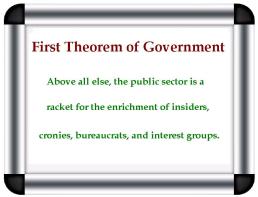"Summits On The Air" with W7MRC, Amateur Radio, Rhodesian Ridgebacks, Field Craft, Living in Montana, Old 4 Wheel Drivers, Mountain Bikes, Hiking and "Just Getting There"
Tuesday, March 31, 2020
Monday, March 30, 2020
Coronavirus and Big Government, Part III March 30, 2020 by Dan Mitchell
I wrote about “Coronavirus and Big Government” on March 22 and then followed up on March 27 with “Coronavirus and Big Government, Part II.”
Now it’s time for the third installment, and we’ll start with this hard-hitting video from Reason, which shows how red tape has hindered the development and deployment of testing in the United States.
Next, here are a bunch of stories and tweets about the deadly impact of bureaucracy and regulation.
As with the Part I and Part II, feel free to click on any of the stories for the details.
The FDA just waived their usual demanding face-mask regulatory standards!
Awesome, let's get making masks:https://www.fda.gov/media/136449/download …
147 people are talking about this
FDA greenlights COVID-19 point-of-care test that can return results in as little as 5 minutes https://yhoo.it/2WQpqoU by @AnjKhem
29 people are talking about this
By the way, the problem of excessive government exists in other nations.
Here are two tweets about the situation in the United Kingdom.
The first one deals with having to get government approval for medical devices.
To everyone making 3D printed ventilator parts in the UK - there is good news from the regulators!
You can apply for approval to supply a non-compliant medical device on humanitarian grounds during the #COVID19 pandemic. Decision made in 48 hours.https://www.gov.uk/guidance/exceptional-use-of-non-ce-marked-medical-devices …
203 people are talking about this
The second one deals with how politicians and bureaucrats have misallocated public health resources – similarly to some of the foolish misadventures of the FDA and CDC (and let’s not forget the World Health Organization).
"Only a tiny fraction of the £4 billion spent on public health in England goes towards the prevention of infectious disease. Far more is spent hassling people about their lifestyles." https://twitter.com/cjsnowdon/status/1244220075974037505 …
69 people are talking about this
I’ll close with another story from the United States.
This report from Reason is especially useful because it contains a 30-minute interview with Professor Alex Tabarrok of George Mason University. So if you liked the short video at the start of this column, you’ll definitely want to click through and watch this video.
The message here isn’t that government shouldn’t exist. As I wrote earlier this month, collective action is appropriate to protect life, liberty, and property. Needless to say, that libertarian principle applies during a pandemic.
But that doesn’t mean government should be micro-managing everything.
In normal times, excessive regulation is a costly nuisance because things cost more and take longer.
In a crisis, however, that means needless death and suffering. Which is exactly what’s happening today.
Let’s hope the folks in Washington learn from this awful experience.
P.S. Another lesson to be learned is the Seventh Theorem of Government.
Coronavirus and Big Government, Part II March 27, 2020 by Dan Mitchell
Five days ago, I wrote “Coronavirus and Big Government” to highlight how sloth-like bureaucracy and stifling red tape deserve much of the blame for America’s slow response to the crisis.
And I started that column by sharing four points from a previous column on “Government, Coronavirus, and Libertarianism.” I’ll start today’s column by repeating the final observation.
4. The federal government has hindered an effective response to the coronavirus.
Here’s a video from John Stossel documenting the federal government’s clumsy incompetence.
And here are a bunch of stories and tweets that provide additional elaboration.
Feel free to click on the underlying stories if you want to get even angrier about the deadly impact of big government.
Good. Another regulation we never needed bites the dust. https://twitter.com/gmaniatis/status/1242852834707746816 …
268 people are talking about this
Wondered why it's been so hard to ramp up production of surgical masks and respirators? Why haven't private companies flooded into the market to meet peak demand?
Because they are regulated medical devices & new versions require FDA approval which can take months to obtain. 1/
2,863 people are talking about this
Distiller trying to switch over to producing hand sanitizer must poison the hand sanitizer or be taxed as if it were producing an alcoholic beverage. https://twitter.com/togneter/status/1242853834608611328 …
270 people are talking about this
No, this is not why we have more coronavirus cases. We have more cases because the FDA and the CDC--both of which are regarded as world class regulators from whom other countries take their lead--were too slow off the mark in establishing a testing regime. https://twitter.com/eugenegu/status/1243291839362297856 …
269 people are talking about this
The silver lining to all the bad news is that politicians and bureaucrats have been relaxing regulatory barriers.
But will they learn the right lesson and permanently repeal government-created barriers that hinder the provision of health care?
Is it true, as Robert Tracinski wrote for the Bulwark, that “We’re All Libertarians now”?
This talking point has since been taken up by others in a more technically accurate form: there are no libertarians in a pandemic. The idea is that when a crisis hits, everyone suddenly realizes how much they need Big Government. This is a bizarre argument to make about a virus that got a foothold partly because of the corrupt and tyrannical policies of a communist government in China.The outbreak is currently at its worst in Italy, where socialized medicine has not turned out to be a panacea. And it was allowed to get out of control in America because the feds imposed an incompetent government monopoly on COVID-19 testing, blocking the use of better and faster tests developed by private companies. …There has been a surge of emergency deregulation to lift artificial barriers that prevent people from solving problems. …the loosening of federal controls on the private development of diagnostic testing, after the disastrous attempt to centralize it all at the CDC. We’re also seeing the suspension of restrictive licensing requirements on doctors and nurses to allow them to work across state lines, so they can go where the shortages are worst. There has also been a whole series of waivers on restrictions on the transportation and serving of food and beverages in order to help restaurants stay in business and feed their customers by offering curb-side service.
Needless to say, I hope Tracinski is right.
But I worry that the net result of this crisis is that  we’ll have more red tape and the CDC and FDA will have bigger budgets.
we’ll have more red tape and the CDC and FDA will have bigger budgets.
 we’ll have more red tape and the CDC and FDA will have bigger budgets.
we’ll have more red tape and the CDC and FDA will have bigger budgets.
If you think I’m being too pessimistic, just remember that the Department of Veterans Affairs was rewarded with more money after letting veterans die on secret waiting lists, the IRS was rewarded with more money after persecuting Tea Party groups to help Obama’s political prospects, and the education monopoly endlessly gets rewarded with more money even though student outcomes stagnate or deteriorate.
All as predicted by the First Theorem of Government.
Subscribe to:
Posts (Atom)






















